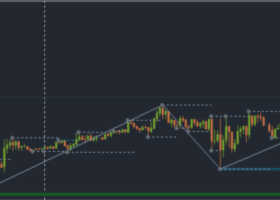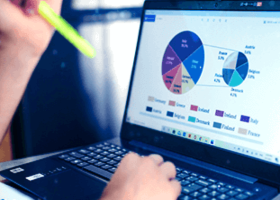Why do you trade forex?
Let me guess…
Because you want to make a ton of money and be able to buy anything you wish?
While this is a perfectly valid reason, it will most likely lead to excessive greed and ultimately lead to your trading account’s destruction. You might as well take your money to Vegas and gamble it away instead. Once your money is all gone, at least it was entertaining.

Greed is the worst motivation for trading. The market will always punish greed and will always reward moderation. Never try to make all of your money on one trade. If you do, you are not trading, you are gambling!
There is a fine line between traders and gamblers. When there is real money on the line, there are always those who take blind chances. If you want to be a successful, do NOT think like a gambler, do NOT take blind chances and do NOT solely rely on luck. Luck comes and goes just like the gambler.
As a trader, you must realize that anything can happen in the markets. Without accepting this very essential fact, you will NEVER EVER become consistently profitable.
I know, I know, the idea just sounds silly! How can you, as a trader, become consistently profitable from a market that has uncertain outcomes? It’s just not possible!
WRONG! In trading and in life, we have what are called PROBABILITIES.
Casinos are profitable year, after year, after year, despite having a business where the outcome of each card laid down, dice roll, or slot pull is unknown each and every time. They understand the concept of probabilities and create games that put the odds in their favor–in other words, “the house advantage.” While it is true that there will be some lucky ones that will win and walk away with millions of dollars, casinos know that if they get a large enough sample size, there will be more losing patrons than winners in the end.
Let’s take baccarat, a popular card game for high rollers, for example. The game is fairly simple. Cards are dealt to a “banker” and a “player,” and all you have to do is place a bet on either one.
Since you have equal access to both the banker and the player (you can even bet on a TIE if you want), it would seem like you essentially have a 50% chance of winning. But in reality, that’s not the case.
By tweaking the rules, like charging a very small commission or reducing the payout if the banker wins with a certain number, the odds are turned slightly in favor of the house. It might be a very tiny advantage, anywhere from 1% to 5%, but it’s enough for the house to eventually come out on top when enough games are played.
You have to remember that what differentiates trading from gambling is being able to bend the odds in your favor. That is why, as a trader, your mindset should be akin to that of the CASINO and NOT the gambler, who merely focuses on one event (or trade) at a time.
To become consistently profitable, you have to trade like the HOUSE and play the advantage over a series of outcomes. You can do this in a couple of ways.
First, you need to learn the market behaviors, patterns, and tendencies that could be recognized in the future and turned into a trading opportunities. This comes from reviewing price action against a framework (support and resistance, mechanical indicators, economic events, etc.), recording your observations, and then devising statistics to keep track of the different kinds of patterns or setups. This is where keeping a trade journal becomes a necessity. Using the data from your journal, you can focus on the setups that have had higher probabilities of winning, rather than those setups that tend to lose.
Secondly, you need solid risk management. You can tilt the odds of long term success in your favor even more if you limit yourself to setting up or taking trades that have an attractive risk-management ratio (ie. average bigger wins than losses). The better the reward-to-risk ratio, the less often you need to win a trade.
For instance, if you notice that you are good in spotting double top formations and trading them, then you can devise a trading system that focuses on finding setups based on double top chart patterns. If you are able take a large enough number of these trades, and your winners are larger than your losers, then you’ll eventually end up profitable over the long run!
And lastly, you can look to other traders in addition to your own analysis. The web is loaded with free economic and technical analysis content. By getting a second opinion, you make sure that you don’t fall into the “confirmation bias” trap.
Of course, these aren’t the only ways to tilt the odds in your favor. But you should always remember that you don’t have to predict exactly where the market will go; you just have to figure out where price will likely go and make the best of it if the trade goes your way.


